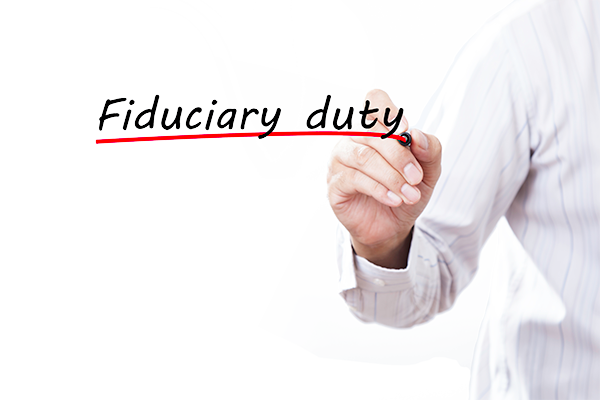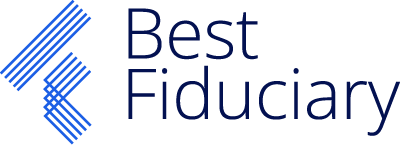Whether you’re nearing retirement or growing a family, your finances are always somewhere near the top of your mind. You can’t save or spend what you don’t have after all! And the world of finance, tax, investment, estate, and insurance planning is truly overwhelming. Are you saving or spending too much? Too little? Are you minimizing your taxes? Is your estate plan set up if something should happen to you? You may be thinking, “Is it finally time to find a fiduciary advisor near me?”
Most often it takes a highly qualified professional to assist with these complex financial situations. You’ve found this article, so you clearly know hiring a fiduciary advisor is paramount to your ultimate financial success.
Perhaps you’re asking, “How can I find the right financial advisor, someone I can trust, to help me navigate the financial markets, optimize my retirement savings, and plan my future with confidence?” You need someone committed to acting in your best interests, not on selling insurance or investment products. If you’re thinking “How do I find a fiduciary financial advisor near me, one that truly prioritizes my financial well-being and can even help with broader planning issues like tax, investment, risk, and estate planning,” you came to the right place!
First off, what even *is* a fiduciary advisor? It’s crucial to know the difference between a fiduciary financial advisor and a traditional financial advisor. A fiduciary advisor is legally obligated to put your financial interests above their own, while other financial advisors often operate under a lesser standard, the suitability standard. This means that, in theory, their recommendations might benefit them more than you. Finding a fiduciary financial advisor can be tricky because not all financial advisors act in a fiduciary capacity.
Table Of Contents:
- Why Choose a Fiduciary Advisor Near Me?
- Finding a Fiduciary Advisor Near You: Proven Methods
- Essential Considerations When Selecting Your Advisor
- FAQs About Finding A
Fiduciary Advisor Near Me - Conclusion
 Fiduciary Advisors must always act in your best interests.
Fiduciary Advisors must always act in your best interests.
Why Choose a Fiduciary Advisor Near Me?
The key benefit of a
fiduciary advisor near me
is the peace of mind that comes with knowing your advisor is legally bound to act in your best interests. They will make recommendations specific to your individual needs and goals. Fiduciary advisors are bound to be transparent, clearly explaining how they are compensated, and must always provide financial advice with your best interests in mind.
Fiduciary advisors must also fully disclose any potential conflicts of interest, ensuring honesty and clarity in their financial planning relationship with you. Finding someone local allows for a personal connection that online searches can’t always match.
The alternative is a financial advisor who operates under the “suitability standard”. This doesn’t mean a whole lot honestly. The suitability standard just means the financial advisor must feel the insurance or investment products they’re selling are generally suitable for your situation.
Industry expert Michael Kitces says something to the effect of anyone can sell you a suit, but a fiduciary will make sure it looks good on you to!
Key Questions to Ask Potential Fiduciary Advisors
When searching for a fiduciary advisor near you, start by having an initial consultation where you can ask about their approach to financial planning, investment strategies, and fee structure. This is a chance for you to assess if their style aligns with your comfort levels and communication preferences.
Here’s a list of essential questions that you should ask:
- Are you a fiduciary at all times? (Some financial advisors operate part-time as a fiduciary and part-time as a non-fiduciary selling insurance and investment products)
- Is your firm registered as a Registered Investment Advisor (RIA)? (This helps confirm fiduciary status, yet some RIA’s also sell insurance and investment products)
- Is your firm independent? (This can reduce conflicts of interest)
- How do you get paid? (Do you use an asset-under-management fee, hourly rates, flat fees, commissions, or a combination? You want to avoid commissions if possible)
- Do you receive commissions from third parties for selling specific financial products? (Transparency is key to avoiding conflicts of interest)
Finding a Fiduciary Advisor Near You: Proven Methods
Once you are ready to take the next step in finding a fiduciary advisor, let’s explore some ways you can find the right person to talk with.
1. Recommendations from Your Network
One of the most effective ways to find a trustworthy financial advisor is by leveraging your existing network. Talk to friends, family, or colleagues and ask if they have a fiduciary advisor they recommend. Personal recommendations can provide insights and firsthand experiences, adding valuable context beyond online reviews.
2. Leverage the Power of Professional Organizations
Several professional organizations advocate for fiduciary advisors and provide directories to help you find them:
- The National Association of Personal Financial Advisors (NAPFA) : NAPFA has an advisor directory with detailed profiles and screening options that let you filter your search to find a fiduciary advisor who specializes in the types of financial services you’re seeking. They advocate for fee-only advisors, meaning the advisors listed don’t earn commissions from selling products like life insurance. Instead, their fees are structured in a way that prioritizes client best interests.
- The Certified Financial Planner Board of Standards: The CFP ® Board allows you to search their directory for Certified Financial Planners, and you can check their disclosures to find those who hold a fiduciary designation such as the AIF ® (Accredited Investment Fiduciary). Most informed investors feel better working with Certified Financial Planners™️ because they are required to take and pass an exam to show they are qualified to advise on client’s finances.
3. Online Financial Advisor Matching Services
Several platforms use technology to connect clients with advisors. While convenient, be sure the service emphasizes fiduciary standards and has robust advisor vetting processes to ensure they partner with professionals that are trustworthy and committed to clients’ best interests. Look for platforms like Zoe Financial , WealthRamp , or Nectarin , which emphasize vetting and matching.
4. Research on Government Databases
The US Securities and Exchange Commission has an online database to check the backgrounds of investment advisory firms and ensure they’re registered with the SEC. Search on their adviser search tool and you can access detailed information including the firm’s Form ADV filing. This brochure will include details such as how the firm is compensated which will help determine if it aligns with your financial needs.
Essential Considerations When Selecting Your Advisor
As you vet the financial advisor that seems like the best fit for you, take these additional steps:
1. Review Their Credentials and Experience
While credentials don’t tell the whole story, carefully reviewing their website, professional experience, and any designations can help provide insights. It can also be a way to determine if their services align with your financial situation, your age, and your financial goals for things like investment accounts, tax, or retirement planning.
2. Consider Advisor Accessibility and Communication Style
Finding a fiduciary advisor near you can allow for more personalized interaction and in-person meetings. Some investors enjoy building relationships face-to-face and the ease of popping by the office if needed. When reviewing their site, make note of what options they make available to their clients.
Determine what matters most to you and assess if the advisor’s approach fits those preferences.
3. Assess Fiduciary Advisor Compatibility
Financial planning requires discussing sensitive and important matters. You’ll want an advisor you’re comfortable working with and can establish a trusting and communicative relationship. Trust your gut and make sure you choose someone with a personality and communication style that clicks with you.
A long-term successful partnership often hinges on the advisor’s commitment to being an active listener, educator, and collaborator.
4. Thoroughly Check the Advisor’s Background
Before committing to a financial advisor, you can delve further into their professional history by researching them on online platforms. FINRA, the Financial Industry Regulatory Authority, offers an online tool called FINRA’s BrokerCheck. By entering the advisor’s name, you can get insights into their past employment history and disciplinary record, if applicable.
FAQs About Finding A
Fiduciary Advisor Near Me
What is a typical fiduciary fee?
There are a variety of ways a fiduciary advisor can charge, including hourly rates, flat fees, or as a percentage of the assets under their management. Typically this ranges between 0.5% to 1.5% of your portfolio’s value each year. Sometimes these fees are referred to as AUM (Assets Under Management) fees.
Hourly rates typically run between $150 and $300 per hour and are a great option if you have specific issues or require financial help occasionally. Lastly, flat fees, where you pay the same amount each month or year regardless of your assets or how many hours are worked on your account are popular among clients with simpler needs. Be sure to inquire about the specific fee structures during your initial meeting, ensuring that the costs align with your financial situation.
Which is better a fiduciary or financial advisor?
Ultimately, the choice is yours, and you need to pick the option best for your situation. However, from my perspective, there’s a big difference between fiduciaries and typical financial advisors that often goes overlooked.
The legal requirement for fiduciary advisors to prioritize their clients’ financial well-being above their own can make a big difference in creating trust, ensuring sound advice, and promoting a client-centered approach. This distinction can make a difference in protecting your investments and building a lasting financial partnership.
How do I find a fiduciary near me?
Finding someone locally can be easy by using directories on websites like NAPFA (The National Association of Personal Financial Advisors), or the CFP Board. Searching those sites and limiting results by zip code can show the options near you. Another popular method is simply word of mouth; ask colleagues or friends who they are using, but be careful! Most financial advisors are not fiduciaries.
How much money do I need to use a fiduciary?
This question is best discussed directly with a fiduciary financial advisor during a free consultation, because some may require a certain minimum to become a client. If that doesn’t align with your current situation, don’t worry.
You might find you can still connect with a fiduciary financial advisor using the fee-only or hourly structure without minimums. Many advisors welcome people from all financial backgrounds and situations, aiming to create personalized solutions to fit those needs.
Conclusion
Finding the right
fiduciary advisor near me
can be one of the most important decisions for building a secure financial future. You want to rest assured your advisor has the knowledge, experience, and qualifications to provide advice tailored to your needs. Don’t rush this decision – carefully consider their credentials, asking important questions, and diligently vetting potential advisors will help you identify a trustworthy and knowledgeable financial professional to guide you on the journey toward financial well-being.
